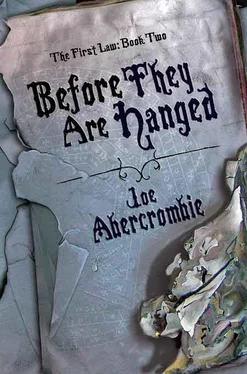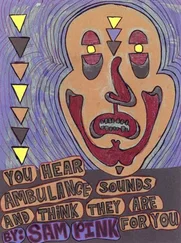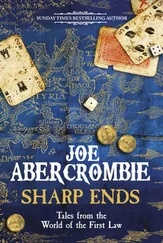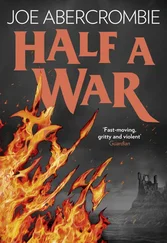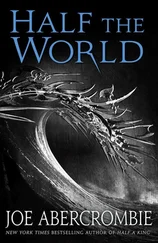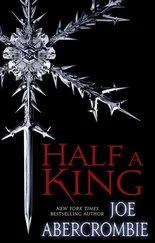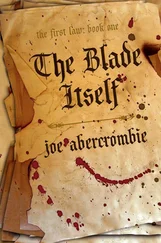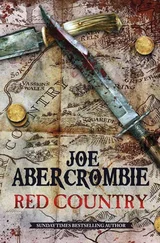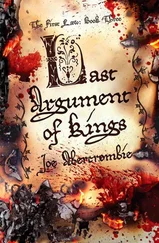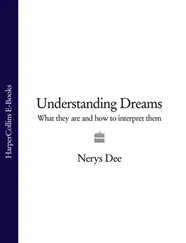Vissbruck stared sternly out from under his brows. “It is we who are in the right.”
“If you like.” The mercenary grinned sideways at Glokta. “But I think the rest of us long ago gave up on the idea that there’s any such thing. The plucky Gurkish come on with their barrows… and it’s my job to shoot them full of arrows!” He barked out a sharp laugh.
“I don’t think that’s amusing,” snapped Vissbruck. “A fallen opponent should be treated with respect.”
“Why?”
“Because it could be any one of us rotting in the sun, and probably soon will be.”
Cosca only laughed the louder, and clapped Vissbruck on the arm. “Now you’re getting it! If I’ve learned one thing from twenty years of warfare, it’s that you have to look at the funny side!”
Glokta watched the Styrian chuckling at the battlefield. Trying to decide when would be the best time to change sides? Trying to work out how good a fight to give the Gurkish before they pay better than I do? There’s more than rhymes in that scabby head, but for the moment we cannot do without him. He glanced at General Vissbruck, who had moved further down the walkway to sulk on his own. Our plump friend has neither the brains nor the bravery to hold this city for longer than a week.
He felt a hand on his shoulder, and turned back to Cosca. “What?” he snapped.
“Uh,” muttered the mercenary, pointing up into the blue sky. Glokta followed his finger. There was a black spot up there, not far above them, but moving upwards. What is that? A bird? It had peaked now, and was coming down. Realisation dawned suddenly. A stone. A stone from a catapult.
It grew larger as it fell, tumbling over and over, seeming to move with ridiculous slowness, as if sinking through water, its total silence adding to the sense of unreality. Glokta watched it, open-mouthed. They all did. An air of terrible expectancy settled on the walls. It was impossible to tell exactly where the stone was going to fall. Men began to scatter this way and that along the walkway, clattering, scuffling, gasping and squealing, tossing away weapons.
“Fuck,” whispered Severard, throwing himself face down on the stones.
Glokta stayed where he was, his eyes locked on that one dark spot in the bright sky. Is it coming for me? Several tons of rock, about to splatter my remains across the city? What a ludicrously random way to die. He felt his mouth twitch up in a faint smile.
There was a deafening crash as a section of parapet was ripped apart nearby, sending out a cloud of dust and flinging chunks of stone into the air. Splinters whizzed around them. A soldier not ten strides away was neatly decapitated by a flying block. His headless body swayed for a moment on its feet before its knees buckled and it toppled backwards off the wall.
The missile crashed down somewhere in the Lower City, smashing through the shacks, bouncing and rolling, flinging shattered timbers up like matchsticks, leaving a trail of destruction in its wake. Glokta blinked and swallowed. His ears were still ringing, but he could hear someone shouting. A strange voice. A Styrian accent. Cosca.
“That the best you can do, you fuckers? I’m still here!”
“The Gurkish are bombarding us!” Vissbruck was squealing pointlessly, squatting down behind the parapet with his hands clasped over his head, a layer of light dust across the shoulders of his uniform. “Solid shot from their catapults!”
“You don’t say,” muttered Glokta. There was another mighty crash as a second rock struck the walls further down and burst apart in a shower of fragments, hurling stones the size of skulls into the water below. The very walkway beneath Glokta’s feet seemed to tremble with the force of it.
“They’re coming again!” Cosca was roaring at the very top of his voice. “Man the walls! To the walls!”
Men began to hurry past: natives, mercenaries, Union soldiers, all side by side, cranking their flatbows, handing out bolts, shouting and calling to one another in a confusion of different languages. Cosca moved among them slapping backs, shaking his fist, snarling and laughing with not the slightest sign of fear. A most inspiring leader, for a half-mad drunkard.
“Fuck this!” hissed Severard in Glokta’s ear. “I’m no damn soldier!”
“Neither am I, any more, but I can still enjoy a show.” He limped up to the parapet and peered out. This time he saw the catapult’s great arm fly up in the distant haze. The distance was poorly judged this time, and it sailed high overhead. Glokta winced at a twinge in his neck as he followed it with his eyes. It crashed down not far short of the Upper City’s walls with a deep boom, throwing chunks of stone far into the slums.
A great horn sounded behind the Gurkish lines: a throbbing, rumbling blast. Drums followed behind, thumping together like monstrous footsteps. “Here they come!” roared Cosca. “Ready with your bows!” Glokta heard the order echoing across the walls, and a moment later the battlements on the towers bristled with loaded flatbows, the bright points of the bolts glinting in the harsh sun.
The great wicker shields that marked the Gurkish lines began slowly, steadily, to move forwards, edging across the blighted no-man’s-land towards them. And behind, no doubt, Gurkish soldiers crawl like ants. Glokta’s hand clutched the stone of the parapet painfully tight as he watched them come on, his heart beating almost as loud as the Gurkish drums. Fear, or excitement? Is there a difference? When was the last time I felt such a bittersweet thrill? Speaking before the Open Council? Leading a charge of the King’s cavalry? Fighting in the Contest before the roaring crowds?
The screens were coming steadily closer, still in an even row across the peninsula. Now a hundred strides, now ninety, now eighty. He looked sideways at Cosca, still grinning like a madman. When will he give the order? Sixty, fifty…
“Now!” roared the Styrian. “Fire!” There was a mighty rattling along the walls as the flatbows were loosed in one great volley, peppering the screens, the ground around them, the corpses, and any Gurkish unlucky enough to be have left some part of their body visible. Men knelt behind the parapet and began to reload, fumbling with bolts, cranking handles, sweating and straining. The drum beats had grown faster, more urgent, the screens passed heedless over the scattered bodies. Not much fun for the men behind, staring down at the corpses beneath their feet, wondering how long before they join them.
“Oil!” shouted Cosca.
A bottle with a burning wick was flung spinning from a tower on the left. It smashed against one of the wicker screens and lines of fire shot hungrily out across the surface, turning it brown, then black. It began to wobble, to bend, then gradually started to tip over. A soldier ran out howling from behind it, his arm wreathed in bright flames.
The burning screen fell to the ground, exposing a column of Gurkish troops, some pushing barrows full of boulders, others carrying long ladders, others with bows, armour, weapons. They yelled their war-cries, charging forward with their shields raised, shooting arrows up at the battlements, zig-zagging back and forth between the corpses. Men pitched on their faces, riddled with flatbow bolts. Men howled and clutched at wounds. Men crawled, and gurgled, and swore. They pleaded and bellowed defiance. They ran for the rear and were shot in the back.
Up on the walls bows twanged and clanked. More bottles of oil were lit and hurled down. Some men roared and hissed and spat curses, some cowered behind the parapet as arrows zipped up from below, clattering from stone or shooting overhead, occasionally thudding into flesh. Cosca had one foot up on the battlements, utterly careless, leaning out dangerously far and brandishing a notched sword, bellowing something that Glokta could not hear. Everyone was screaming and shouting, attackers and defenders both. Battle. Chaos. I remember now. How could I ever have enjoyed this?
Читать дальше
